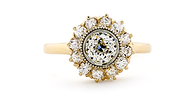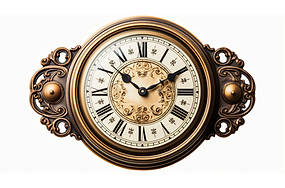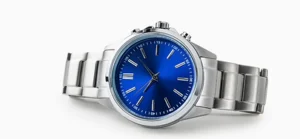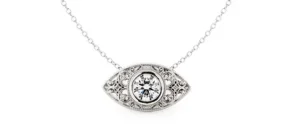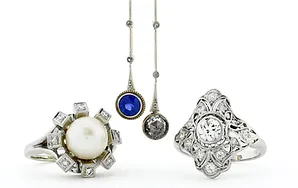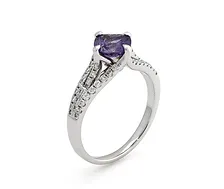Choosing when to propose is a deeply personal decision—and it can feel just as significant as choosing the ring itself. With social media full of perfectly timed proposals and engagement announcements, it’s easy to feel pressure to get the timing exactly right. But life rarely presents a flawless window for major milestones. So how do you know when it’s the right time?
Whether you’re navigating a career change, planning a move, or simply unsure if now is the moment, this guide will help you sort through the noise and plan a proposal that’s both meaningful and grounded in your relationship.
1. Focus on Emotional Readiness, Not Just the Calendar
One of the biggest myths about proposals is that there’s a specific “right” time based on how long you’ve been dating. But the truth is, emotional readiness matters more than a timeline. A couple who has dated for a year and built deep trust may be more prepared for engagement than a couple dating for three years without aligned goals.
Signs you may be emotionally ready to propose:
- You’ve talked openly about marriage, values, and long-term plans
- You’ve worked through challenges together and grown as a couple
- You’re excited about your future, not just the idea of getting engaged
Emotional readiness isn’t about feeling 100% sure of the future—it’s about being confident in the partnership you’ve built and your shared ability to grow together.
2. Use Life Transitions as a Guiding Context, Not a Roadblock
Big life events like moving in together, starting a new job, or finishing school can feel like obstacles—but they can also be opportunities. These transitions often force couples to reevaluate priorities, communicate more clearly, and grow in their relationship.
While it’s wise to avoid proposing in the middle of intense stress, don’t fall into the trap of waiting for everything to “settle down.” Life is rarely calm for long.
Examples of great proposal timing during transitions:
- Proposing at the end of a long-distance phase when you’re finally living in the same city
- Planning a quiet proposal during a vacation or holiday break after a hectic work season
- Choosing a date that marks a shared milestone—your first apartment, graduation, or surviving a tough year together
The proposal becomes even more meaningful when it reflects what you’ve been through together.
3. Match the Timing to Your Partner’s Personality and Preferences
If you’re trying to plan the right moment, remember: the proposal is about your partner as much as it is about you. Some people dream of a big, public proposal. Others prefer quiet, intimate settings. The best proposals are the ones that feel personal—not performative.
Timing plays a huge role in this. Think about what would make them feel loved, supported, and emotionally present.
Questions to ask yourself:
- Are they going through anything emotionally heavy right now?
- Would they enjoy a holiday or birthday proposal, or find it cliché?
- Have they hinted at their dream proposal scenario?
For example, if your partner has a stressful work deadline coming up, it might be better to wait until they can fully enjoy the moment. On the flip side, if they’ve just accomplished something big—like a promotion or graduation—a proposal could feel perfectly timed.
4. Plan Ahead to Personalize the Moment
Even the most spontaneous-feeling proposals usually involve some prep behind the scenes. Whether you’re hiring a photographer, booking a location, or choosing a ring, planning ahead allows you to create a moment that reflects your relationship’s uniqueness.
Proposal planning timeline ideas:
- 3+ months out: Ideal if you’re creating a custom ring, planning a destination proposal, or involving family and friends
- 1–2 months out: Good for scheduling photographers, scouting locations, or choosing a meaningful setting
- A few weeks out: Enough time for a simple, heartfelt proposal that focuses on words, timing, and connection
Being flexible is just as important as being prepared. Weather, emotions, or logistics might shift your timeline—and that’s okay. A great proposal adapts while staying true to your intent.
5. Avoid These Common Proposal Timing Mistakes
Even with the best intentions, certain proposal timings can backfire if they’re rushed, pressured, or poorly thought out.
When NOT to propose:
- During or right after a major argument or unresolved issue
- To fix a relationship that’s struggling or uncertain
- During someone else’s wedding or big event (unless you have their blessing)
- In a moment when your partner is likely to feel emotionally distracted or drained
Avoid turning a proposal into a dramatic gesture to “save” a relationship. Proposing should be an extension of stability—not a replacement for it.
6. Don’t Let the Pressure of Perfection Keep You From Moving Forward
If you’re waiting for the perfect time, you might be waiting forever. Jobs change, families evolve, and life never really slows down. The key isn’t perfect timing—it’s meaningful timing.
Ask yourself:
- Have we grown stronger through challenges?
- Do I know and accept my partner deeply?
- Are we both talking about a future together?
If the answer is yes, then now might be the perfect time—even if your career, living situation, or schedule isn’t fully settled yet.
Thinking About Proposing?
If you’re planning a proposal and want help with ring sizing, design, or customization, the expert jewelers at FWCJ are here to help.
Schedule an appointment or visit our store to find the perfect ring—and make your moment unforgettable.




